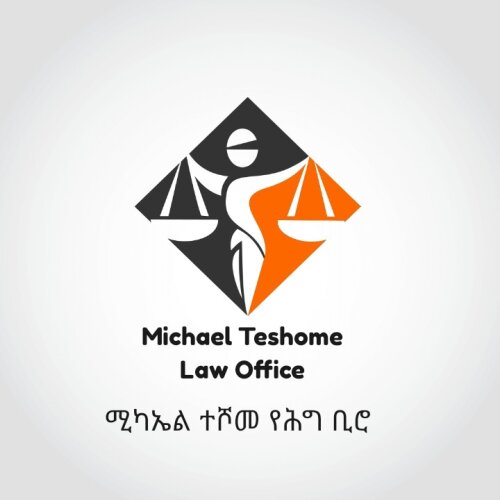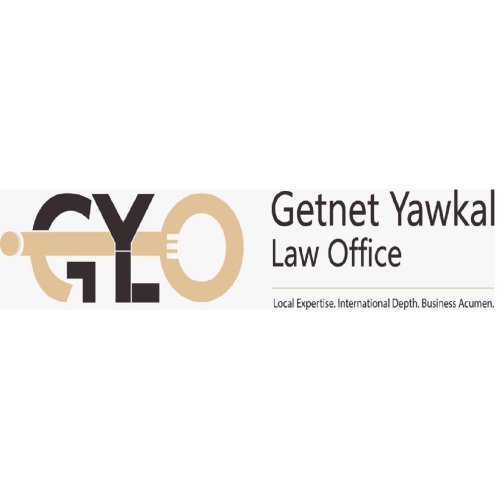Best ADR Mediation & Arbitration Lawyers in Ethiopia
Share your needs with us, get contacted by law firms.
Free. Takes 2 min.
Or refine your search by selecting a city:
List of the best lawyers in Ethiopia
About ADR Mediation & Arbitration Law in Ethiopia
Alternative Dispute Resolution (ADR), which includes mediation and arbitration, is a legal approach in Ethiopia used to resolve disputes outside of courts. This method has become increasingly popular for its efficiency, cost-effectiveness, and capacity to reduce the burden on the judicial system. Ethiopian ADR law promotes amicable settlement of disputes through negotiation and dialogue. Mediation involves a neutral third party who facilitates discussions between the disputing parties to assist them in deriving a mutually agreeable solution. Arbitration involves the appointment of an arbitrator who hears arguments from both sides and makes a binding decision. ADR in Ethiopia is grounded in traditional dispute resolution mechanisms and modern legal practices, integrating customary laws and international arbitration standards.
Why You May Need a Lawyer
There are numerous situations where individuals or businesses in Ethiopia may require legal help with ADR. These include contractual disputes, employment disagreements, family law issues, and business conflicts. A lawyer experienced in ADR can provide invaluable guidance and advocate on your behalf, assisting in negotiating settlements, drafting agreements, and ensuring that proceedings comply with legal standards. Lawyers are often essential when complex legal questions arise, or when an impartial mediator or arbitrator's decision needs to be enforced through the court system.
Local Laws Overview
Ethiopia has developed a robust framework for ADR through its Civil Code and other legislative instruments. Key aspects of Ethiopia's ADR law include the enforcement of arbitration agreements, recognition of mediation outcomes, the legal standing of arbitral awards, and the obligation of parties to adhere to arbitration procedures. The Civil Code prescribes rules regarding the appointment of arbitrators, the conduct of arbitration, and the setting aside or enforcement of arbitral awards. Importantly, specific sectors, such as banking and construction, often have dedicated arbitration rules and regulations.
Frequently Asked Questions
What is ADR?
ADR stands for Alternative Dispute Resolution, which encompasses mediation, arbitration, and other methods to resolve disputes outside of formal court proceedings.
How does mediation work in Ethiopia?
In mediation, a neutral third party assists disputing parties in negotiating a settlement. The mediator facilitates discussions but does not impose a decision.
What is the role of an arbitrator?
An arbitrator is a neutral official who evaluates the arguments presented by both parties and issues a binding decision to resolve the dispute.
Can arbitration decisions be appealed?
In general, arbitration decisions, or "awards," are final and binding with limited grounds for appeal, primarily focusing on procedural errors or irregularities.
What are the advantages of ADR over litigation?
ADR typically offers faster resolution, reduced legal costs, confidentiality, and a less adversarial process compared to traditional litigation.
Is ADR mandatory in Ethiopia?
While ADR is not mandatory, many contracts in Ethiopia include arbitration clauses, making it compulsory for parties to engage in arbitration under dispute.
Will I need a lawyer for ADR proceedings?
While not strictly necessary, having a lawyer can help ensure that your rights are protected and that ADR processes are conducted fairly and in compliance with legal standards.
How are arbitrators selected?
Arbitrators can be selected by mutual agreement between the parties or appointed by an arbitration institution or court as per the arbitration clause or agreement.
What happens if one party refuses to participate in ADR?
If a party refuses to engage in court-mandated or contractually agreed-upon ADR, they may face legal consequences, including potentially unfavorable legal judgments.
Is ADR recognized internationally?
Yes, ADR, particularly arbitration, is widely recognized on an international scale, and arbitral awards are enforceable in many jurisdictions under treaties like the New York Convention.
Additional Resources
For individuals seeking legal advice on ADR in Ethiopia, several resources can be helpful:
- Federal Attorney General Office - provides information on ADR practices and regulations.
- Ethiopian Lawyers Association - offers listings of ADR specialists and legal aid.
- The Ethiopian Arbitration and Conciliation Center - specializes in offering ADR services.
Next Steps
If you need legal assistance in ADR mediation or arbitration in Ethiopia, consider the following steps:
- Consult with a lawyer experienced in ADR to discuss your situation.
- Review any existing contracts or agreements that may involve ADR clauses.
- Explore options for mediation or arbitration through established centers or networks.
- Prepare all necessary documentation and evidence for the ADR process.
- Stay informed about your rights and obligations under Ethiopian ADR law.
Lawzana helps you find the best lawyers and law firms in Ethiopia through a curated and pre-screened list of qualified legal professionals. Our platform offers rankings and detailed profiles of attorneys and law firms, allowing you to compare based on practice areas, including ADR Mediation & Arbitration , experience, and client feedback.
Each profile includes a description of the firm's areas of practice, client reviews, team members and partners, year of establishment, spoken languages, office locations, contact information, social media presence, and any published articles or resources. Most firms on our platform speak English and are experienced in both local and international legal matters.
Get a quote from top-rated law firms in Ethiopia — quickly, securely, and without unnecessary hassle.
Disclaimer:
The information provided on this page is for general informational purposes only and does not constitute legal advice. While we strive to ensure the accuracy and relevance of the content, legal information may change over time, and interpretations of the law can vary. You should always consult with a qualified legal professional for advice specific to your situation.
We disclaim all liability for actions taken or not taken based on the content of this page. If you believe any information is incorrect or outdated, please contact us, and we will review and update it where appropriate.
Browse adr mediation & arbitration law firms by city in Ethiopia
Refine your search by selecting a city.

















